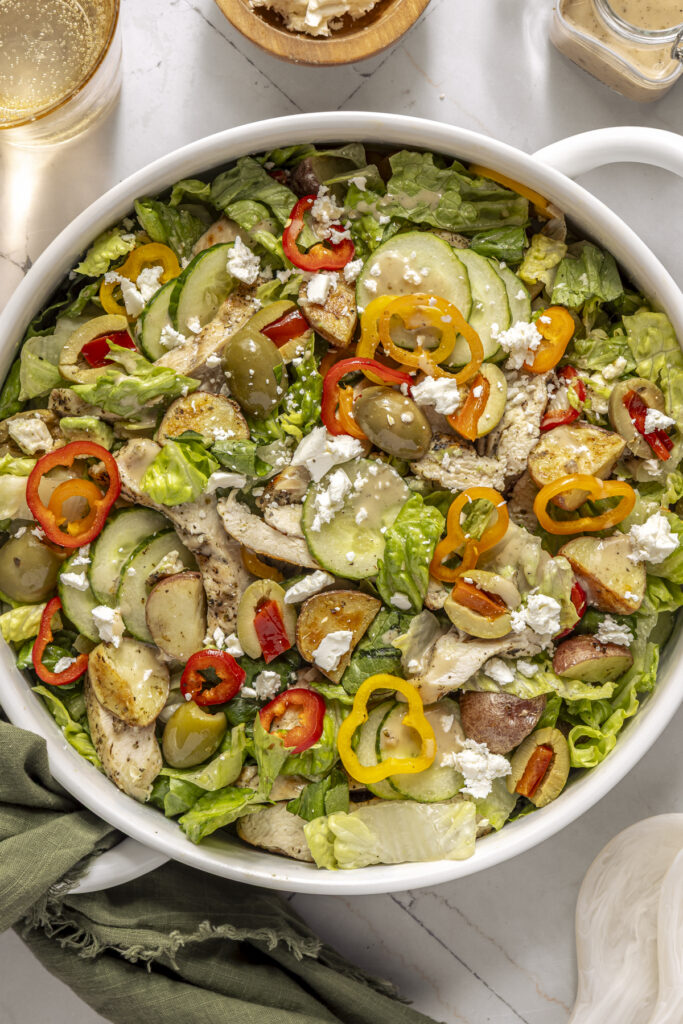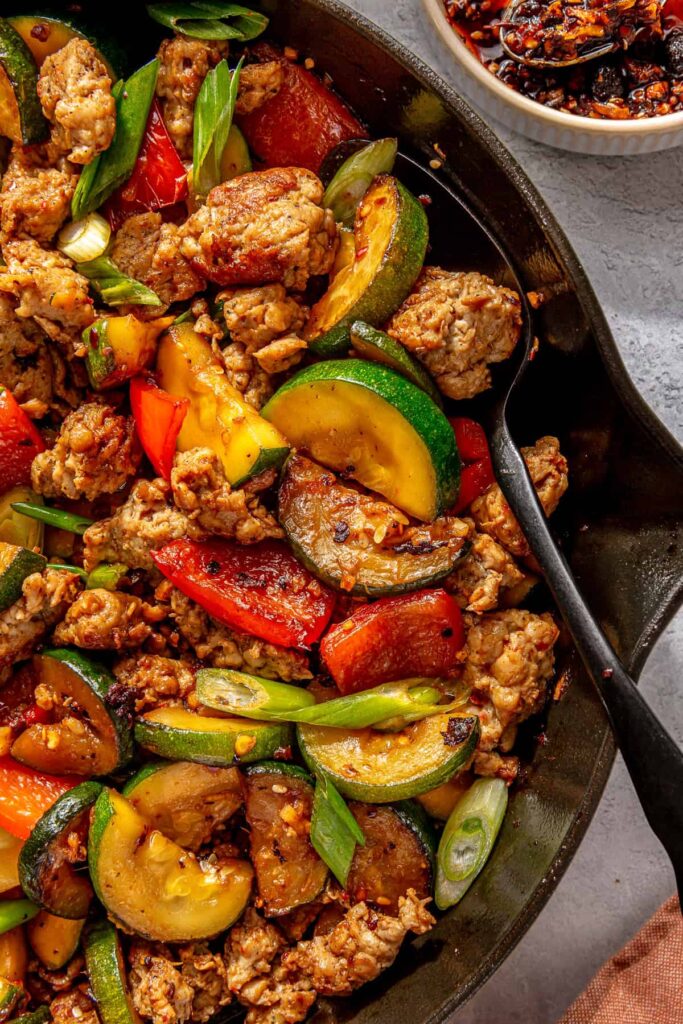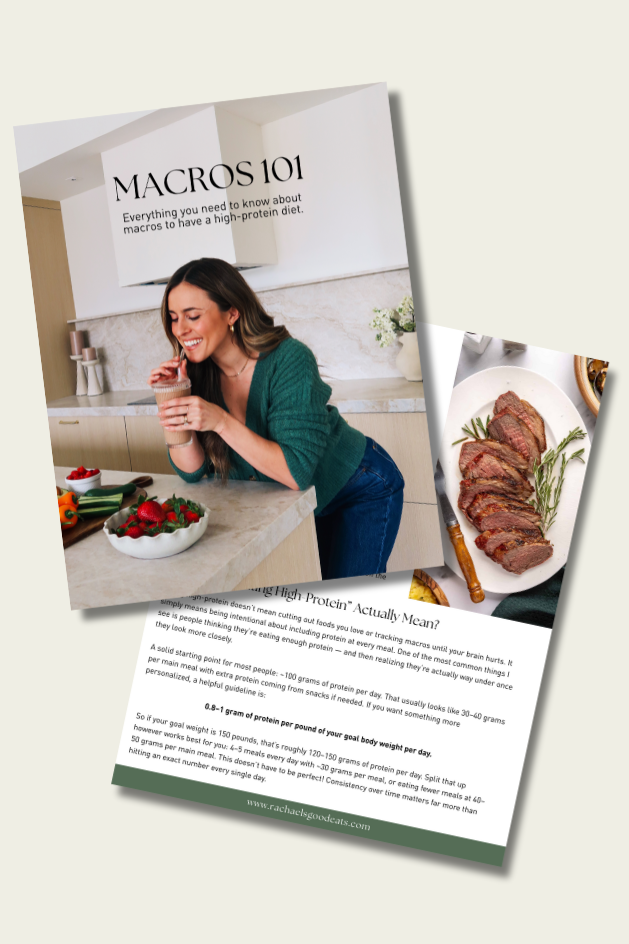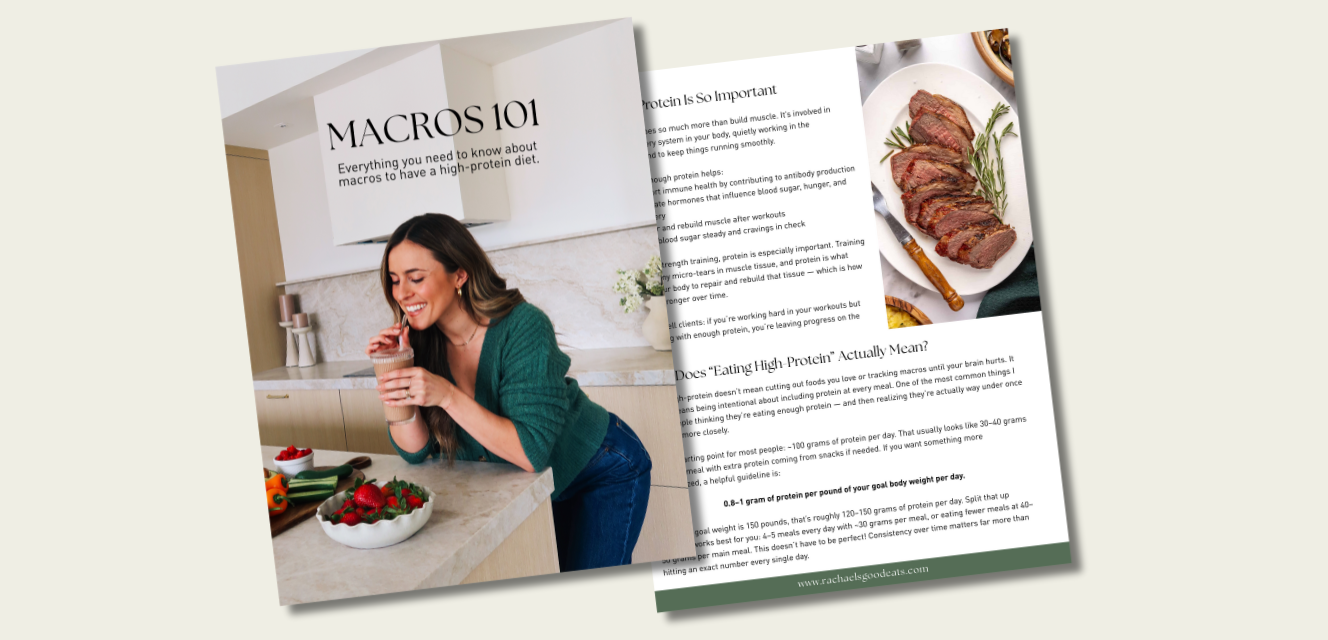
I’m here to talk all things pregnancy nutrition today. First of all – why does it feel like the content I see most often about eating during pregnancy are these big scary lists of all the foods we need to avoid? There is so much information to take in before, during, and after pregnancy and unfortunately so much of what I see is negative and scary!! Pregnancy is such an amazing experience but it can be overwhelming (especially the first time when everything is new).
I am so passionate about providing approachable and educational content around pregnancy and postpartum nutrition that isn’t scary. The good news is that optimal pregnancy nutrition is not restrictive, not boring, and won’t be difficult for you to achieve, I promise.
I’m going to break down 3 food categories to eat daily that will cover most of the nutritional needs during pregnancy. We’ve got this!
Why You Should Eat Nutrient Dense Foods To Support Your Pregnancy
Eating well during pregnancy is the most impactful way to support both your health and your baby’s development. Your body’s nutrient needs increase as it works overtime to grow new life, which means that at every meal you have the opportunity to contribute to your nutrient stores and positively impact both you and your growing baby. Focusing on balanced, nourishing meals can help with steady energy, healthy weight gain, and key nutrient intake that supports everything from brain development to immune health.
Let’s dive into the 3 daily essentials for pregnancy nutrition.
1. The Importance of Eggs During Pregnancy
The #1 pregnancy superfood: eggs!
Maybe you’ve heard me say this a million times already, but it’s worth repeating: don’t skip the yolks! According to Lily Nichols in Real Food for Pregnancy, eggs (especially the yolks) are one of the richest sources of choline, a nutrient which is vital for fetal brain and spinal development, and one of the only non-seafood sources of DHA, a key omega-3 fat that is linked to higher IQs in infants (1). Egg yolks also contain high amounts of folate, B-vitamins, antioxidants, and trace minerals, all of which contribute to a healthy pregnancy and healthy baby.
Not only are eggs an easy source of food-based choline to incorporate, but they’re a macronutrient powerhouse. High in complete protein and healthy fats with no carbs, they’ll contribute to the incredibly important daily caloric intake for your body and your growing baby, keeping you full after your meal and helping to reduce cravings throughout the day. Fried, scrambled, or hard-boiled eggs make for a perfect breakfast – you can pair with sourdough toast, fruit, oatmeal, protein smoothie, or any other nutrient-rich carbohydrate for a balanced meal!
Easy Egg Recipes



2. How To Sneak More Veggies Into Your Diet
The second essential food to eat daily for pregnancy are colorful vegetables, and especially leafy greens! I won’t lie to you, there were days during my pregnancy that not one single vegetable was consumed. But overall, I’m proud of the balance that I was able to maintain in my diet while pregnant. Some days I was eager for a fresh and crunchy salad with all the colorful veggies, and other days I had to hide vegetables in more palatable foods and treat myself like a toddler. Hey – whatever it takes!
Leafy greens especially are important to sneak into your diet. Greens are one of the most abundant sources of folate (critical for fetal neural development) as well as vitamin C, beta-carotene, fiber, B-vitamins, and trace minerals.
There are too many nutritional benefits of vegetables to list, but here are a few crucial reasons they’re essential to pregnancy:
- Fiber: helps slow down digestion and prevents constipation
- Influence to your baby: you should aim for as much variety as possible in your veggie intake not only for the sake of your health, but because your growing baby’s preferences for healthy foods are formed partly in utero (1) – how cool!
- Gut health: vegetables feed the healthy bacteria in your gut, and a healthy gut during pregnancy can create a healthier infant microbiome!
Veggie Forward Meals



3. Eating 100+ Grams of Protein
Surely this won’t be a shocker to you – the best advice I can give you is to have a high-protein pregnancy! Proteins are literally the building blocks of life, and since you’re literally building life, it’s not something you can skip.
High-protein foods are naturally filling, keep you fuller for longer, and help stabilize blood sugar levels. Not only will eating enough protein help your energy levels during pregnancy, but eating protein regularly can help alleviate pregnancy-related nausea (1).
100 grams of protein might seem like a lot—especially if you’re currently under-eating protein, it can feel even more daunting! Conventional nutrition guidelines recommend about 60 grams of protein per day for a 150 lb woman, but this recommendation is based on just one study (1). More recent research shows that protein needs actually increase throughout pregnancy, with requirements rising by roughly 39% in early pregnancy and up to 73% in the third trimester. For the average-weight woman, this means optimal protein intake can exceed 100 grams per day (1). If you’re ready to increase your daily protein consumption, read these posts: How I Eat 100 Grams of Protein Daily, What I Eat In A Day (110+ Grams of Protein), & The Truth About High Protein Diets.
Top Protein Sources During Pregnancy
It’s so important to eat a variety of protein sources in your diet to ensure you get an optimal balance of amino acids, vitamins, and minerals. Some of the most nutrient-dense sources come from animal proteins. Beef provides high-quality protein along with important nutrients like iron and zinc, which help prevent anemia and support immune function. Chicken is a lean, versatile protein that’s easy to prepare in a variety of dishes, supplying essential amino acids without too much saturated fat. Fish offers protein plus omega-3 fatty acids, which are critical for your baby’s brain and eye development—just be sure to choose low-mercury options like salmon, sardines, or trout. Other sources of protein include nuts, cheese, yogurt, eggs, beans, peas, and lentils.
The High Protein Plate

Eating Well During Pregnancy: Practical Tips & Reminders
- Eat regularly: Every 3–4 hours helps maintain energy, stabilize blood sugar, and reduce discomfort like nausea or low blood sugar.
- Prioritize real food: Minimally processed, whole foods win – always! Focus on simple meals you can plan ahead, make double batches of dinner so you always have leftovers on hand.
- No need for perfection: Some days will be harder (morning sickness, aversions, fatigue). The aim is consistent good choices, not flawless. Try to make one good decision at every meal, whether it’s to prioritize protein or sneak veggies into your daily smoothie if you know you won’t eat them otherwise.
- Supplements don’t replace food: They support you (especially folate, iron, DHA) — but food is your primary foundation. Read more about my pregnancy supplements here.
Sources:
Nichols, Lily. Real Food For Pregnancy. 2018.
















Comments